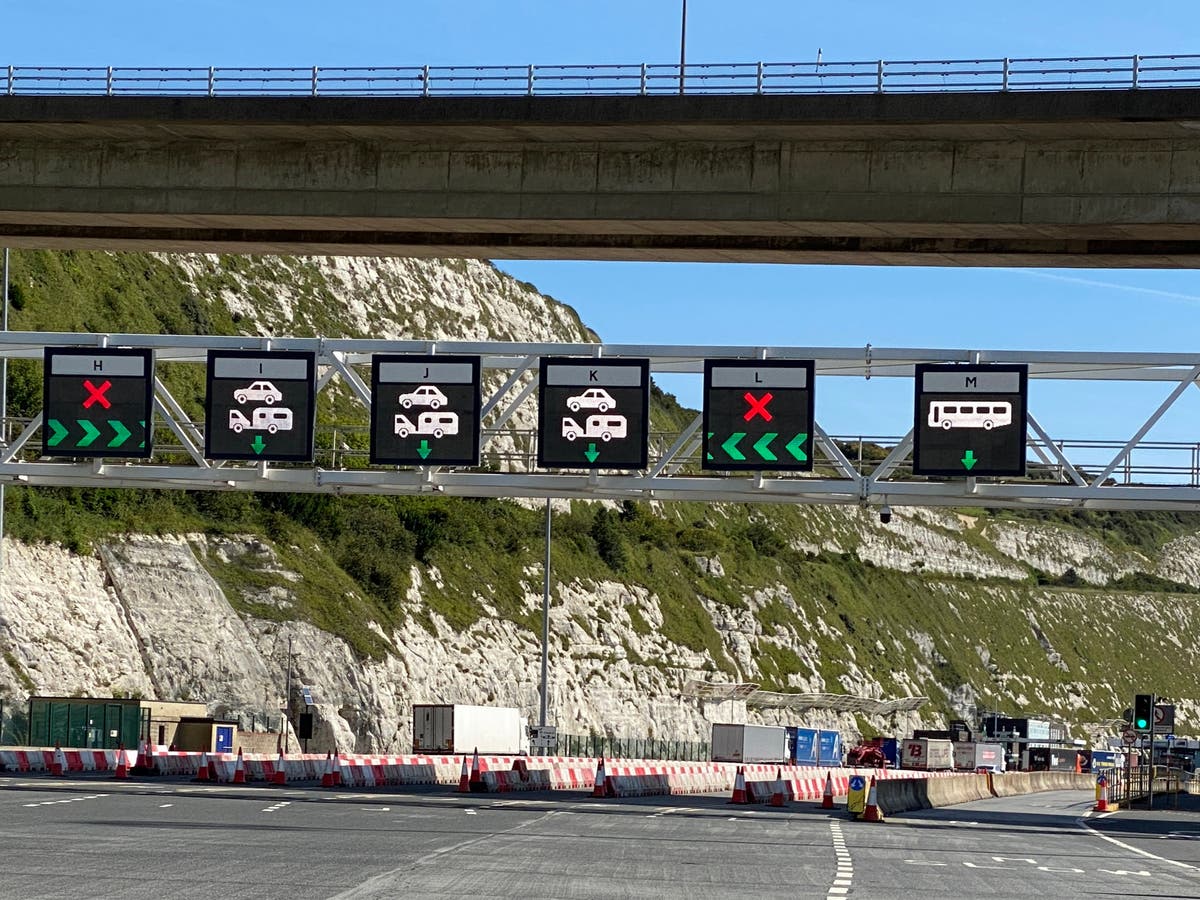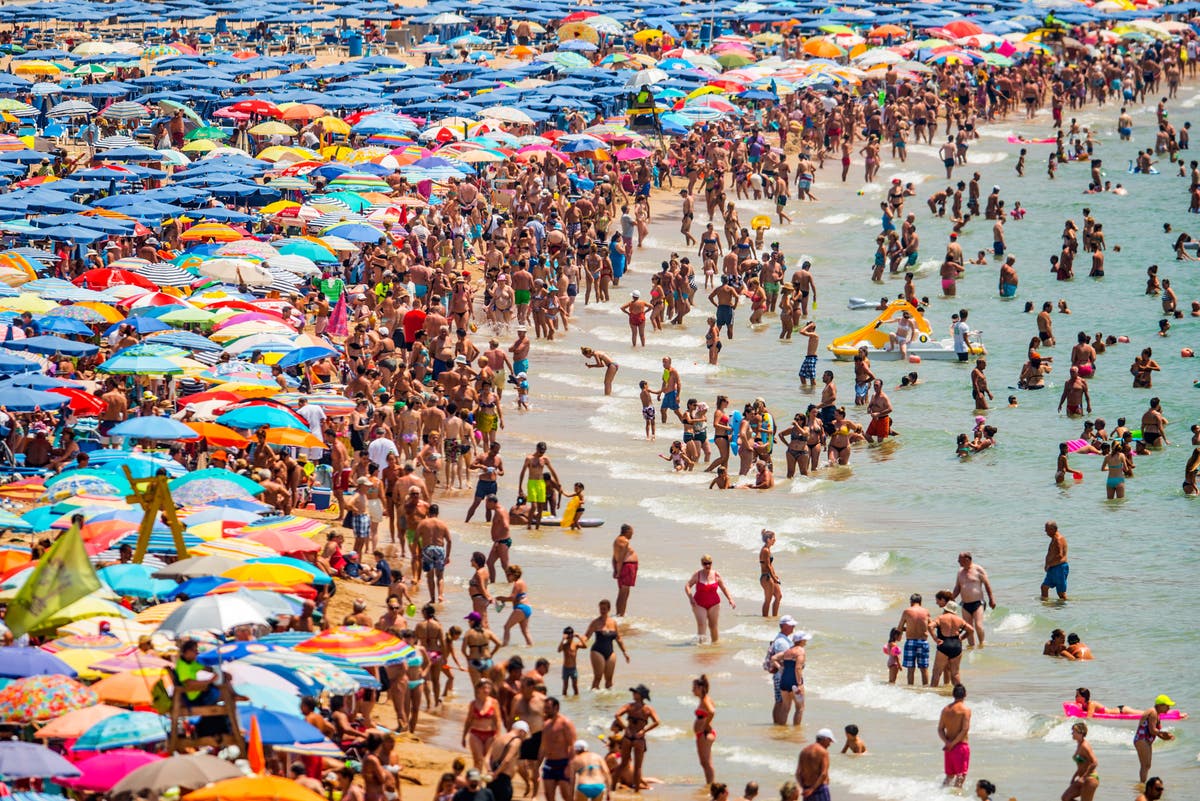How long are ferry queues and delays at Dover this summer?
Exclusive: Tired of waiting? Maximum predicted wait of 2.5 hours reached only for a short spell on the busiest day of the summer

Sign up to our free Brexit and beyond email for the latest headlines on what Brexit is meaning for the UK
Sign up to our Brexit email for the latest insight
Delays for motorists departing from the Port of Dover to France reached the maximum predicted wait of 150 minutes – but only once, on the busiest day of the summer.
In July 2022, some families leaving for Calais and Dunkirk faced delays of 12 hours or more as the first big post-Covid getaway came into conflict with new post-Brexit passport rules.
At what is now a hard EU frontier beneath the White Cliffs of Dover, the time taken for French Police aux Frontières to check each car has increased from a few seconds per vehicle to between 60 and 75 seconds. With up to 1,000 cars per hour flowing into the Kent port, queues can quickly build.
At the start of the last school summer holidays, a delay in staffing the border posts and severe traffic congestion in east Kent led to extreme delays.
But speaking exclusively to The Independent, Dover’s chief executive, Doug Bannister, said additional staffing and expanded facilities had proved effective in keeping a lid on delays.
“The numbers are turning up as we expected they would,” he said. “And the ‘dwell times’ we have had before border controls have only once reached the maximum peak we had warned people might be the case.”
With no UK frontier formalities when departing from Dover, the key variable is the time spent waiting for French border control. The peak wait of two-and-a-half hours was experienced only for motorists turning up at the port entrance in the hour between 10 and 11am on Saturday 29 July.
The Dover CEO rejected the suggestion that such a long wait compares badly with aviation.
“The comparison to make is that when families are travelling and they’re taking their flights somewhere, then they’re going to turn up to the airport usually between two and three hours early. That’s what I would do with my family. So it’s a comparable amount of time.
“The difference here, of course, is you get all your formalities done at this end and you keep your bags with you, they’re all in the car. So when you get to the other side, just drive off and you carry on your holiday. When you get to the destination airport, then you still have immigration and baggage and customs, and to find your onward transport, all yet to come.”
In the summer of 2022, when London Heathrow faced long queues, bosses capped the number of departing passengers to reduce the stress on the airport systems. Mr Bannister rejected the option, saying: “We have worked really well with our ferry operators to make certain that we have planned all the capacity and we’ve got all the resourcing in place.
“We certainly did not feel the need to introduce any measures at all this summer. And it would be our ambition to keep growing the tourist market through Dover, supporting our ferry operators so that we wouldn’t want to ever have to do that.”
The average wait for French border control on the three peak weekends at the start of the summer holidays was 33 minutes.
On the busiest day of the summer, 29 July, 42,415 passengers travelled through the port in 10,220 cars and 195 coaches. About half as many people arrived on ferries from northern France. In total, there were around twice as many passengers as on the average day.

 FrankLin
FrankLin 






























